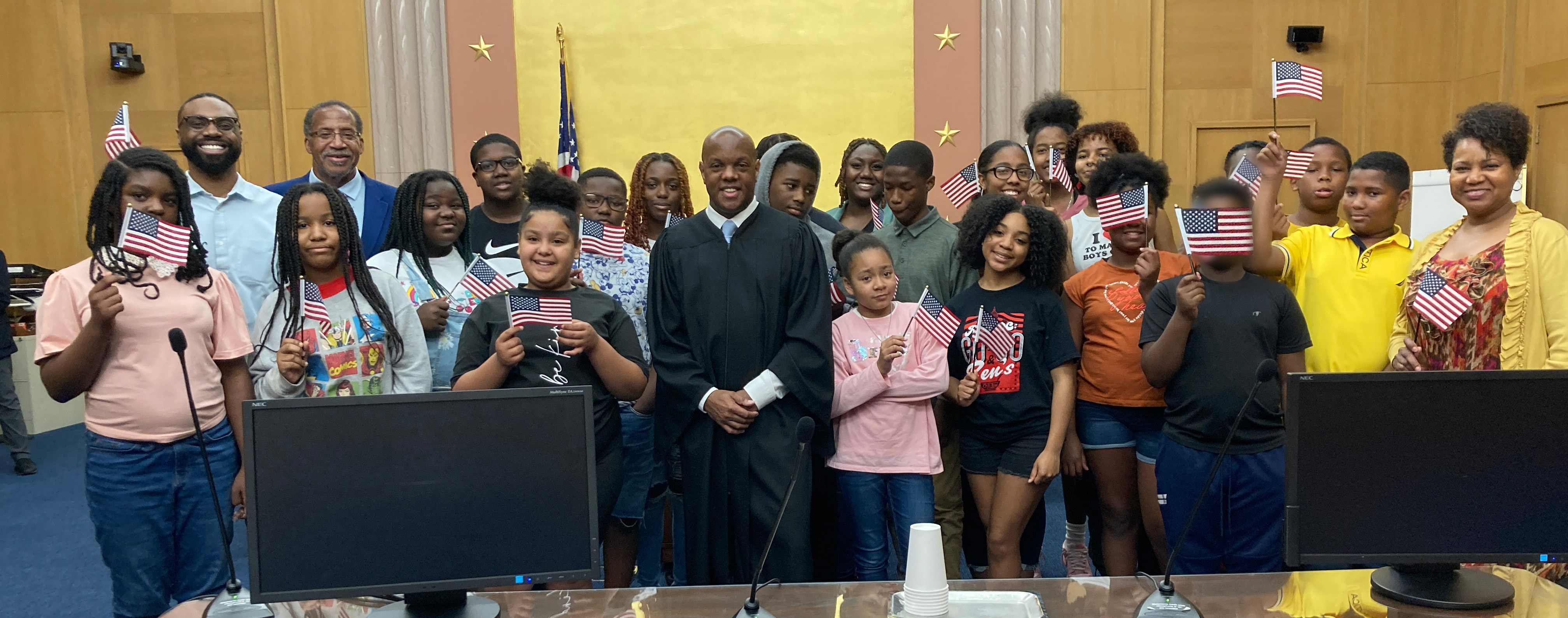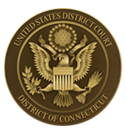

Public outreach is an important initiative in the District of Connecticut. The court established the District of Connecticut Public Outreach Committee (“CTPOC”) and tasked it primarily with educating the public about the vital role of the courts, judges, and lawyers in preserving the rule of law.
The CTPOC has established partnerships between federal judges, attorneys, educators, students, community groups, and court personnel to provide learning opportunities at the federal courthouses in New Haven, Hartford, and Bridgeport, at host sites, and online.
The CTPOC’s most substantial program is The Hon. Warren W. Eginton Justice Institute. We invite you to consider this program or any of the following outreach activities and resources available to the public.
On-site and Online Programs
- Available Year-round:
- Host a Guest Reader at an Elementary School
- Write Welcome Letters to New Citizens
- Attend a Naturalization Ceremony
- Play a Legal Trivia Game
- Visit the Courthouse to Meet a Judge
- Engage with a Career Path Panel at a Courthouse
- Host a Civics Class Collaboration
- Host a Court-Taught Civics Class
- Participate in a Mock Hearing
- Participate in a Mock Trial
- March: Celebrate Read Across America Week
- May: Celebrate Law Day
- Participate in Art Exhibits
- Participate in Essay Contests
- Host a Judge at Your Elementary School
- Visit the Courthouse to Meet a Judge
- Attend a Naturalization Ceremony
- Request Handouts
- July: Attend The Hon. Warren W. Eginton Justice Institute
- FREE 5-day summer camp!
- September: Celebrate Constitution and Citizenship Day
- Write Welcome Letters to New Citizens
- Attend a Naturalization Ceremony
- Participate in Art Exhibits
- Participate in Essay Contests
- Compete in Constitution Quiz Bowl
- Request Handouts
- December: Celebrate Bill of Rights Day
- Host a Conversation and Q&A Session with a Judge
- Host a Panel of Judges
- Resources
Interested in registering for any of these programs? Questions? Email public_outreach@ctd.uscourts.gov.
